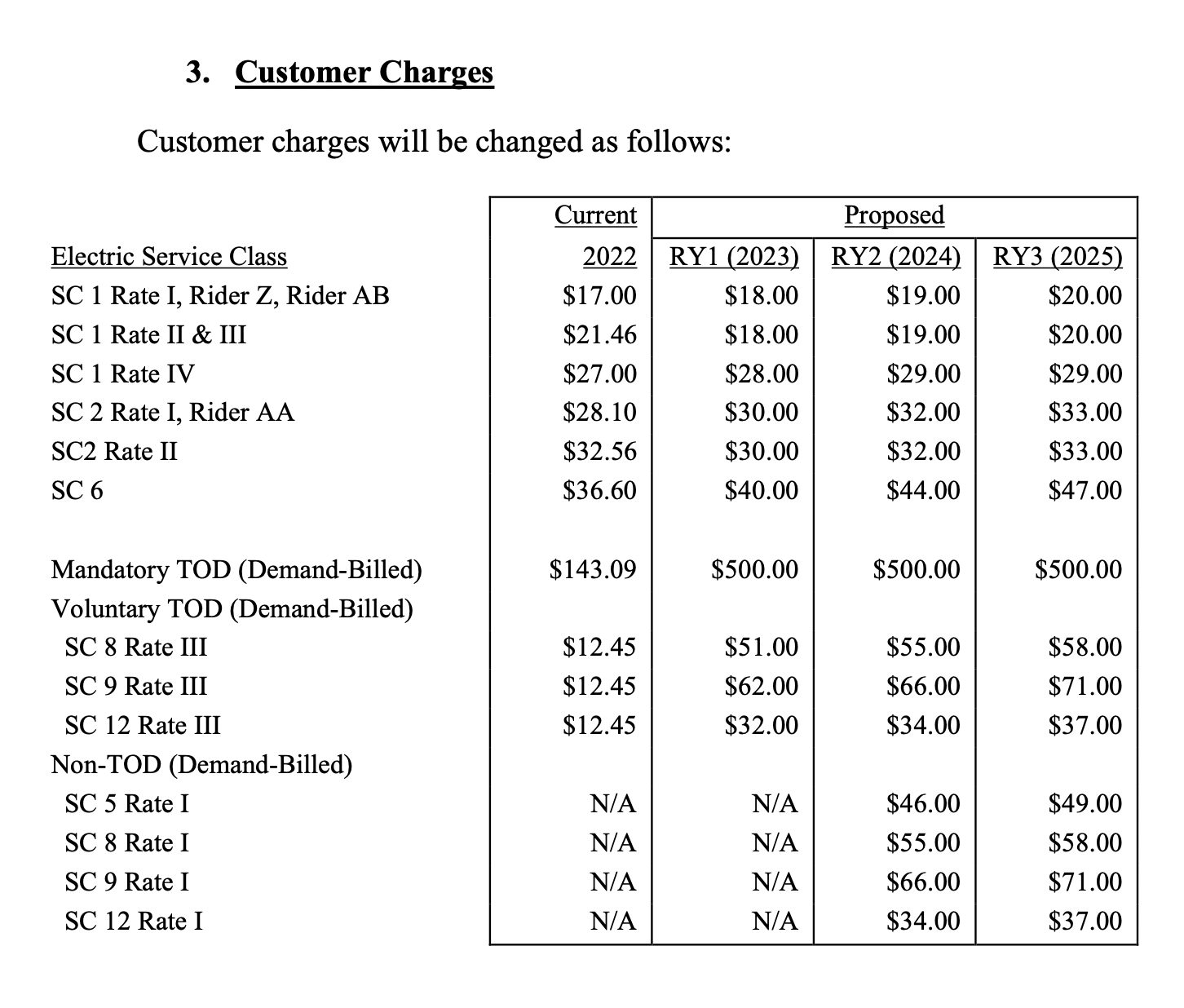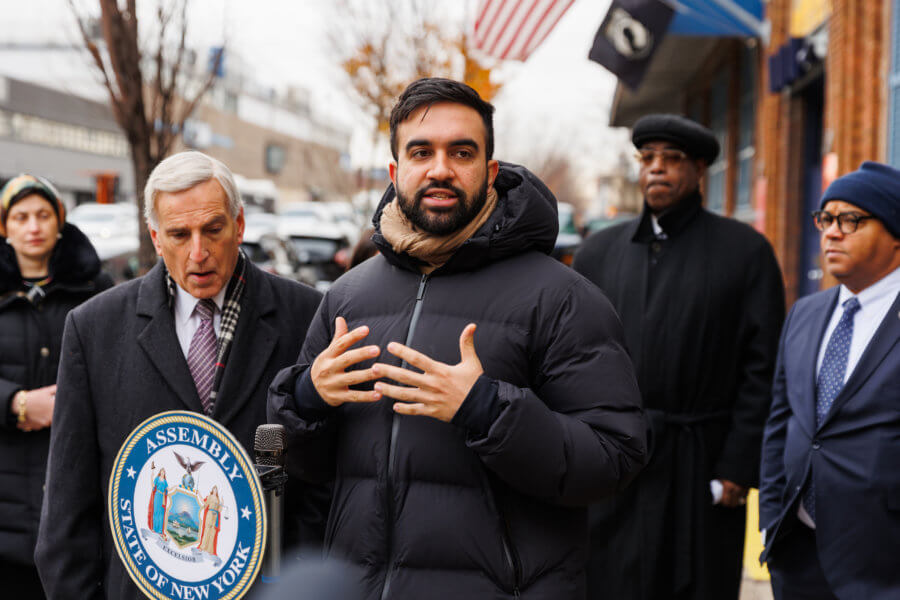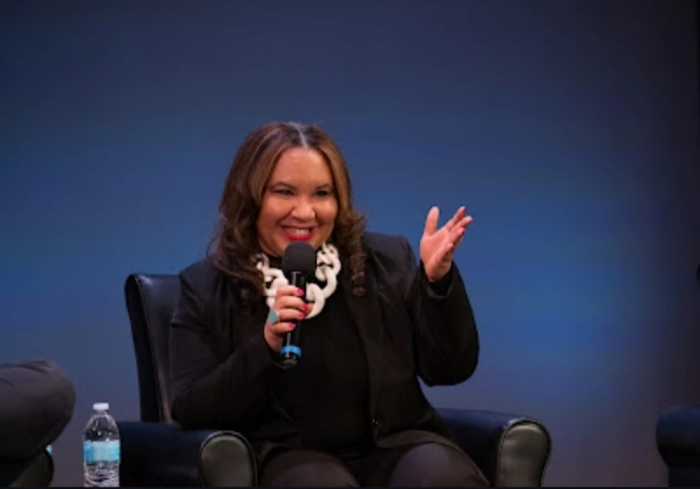Con Edison customers across New York City might soon have to dig even deeper to pay for their electricity — a prospect that has left plenty of local lawmakers charged.
On Feb. 28, Queens Assemblymember Zohran Mamdani joined six other state legislators to urge Governor Kathy Hochul to rule against utility provider Con Edison’s proposal to increase rates for gas and electricity for New York utility customers.
What this means for New Yorkers is an increase of $20.90 every month for electricity and $37.88 every month for gas, which translates to around a yearly increase of $705. This is part of a three-year rate increase plan agreed upon Feb. 16 between Con Edison and the Public Service Commission, the state’s arm that oversees gas, electricity, and water industries.
For the next three years, Con Edison will rake in an additional $457.45 million every year in electric delivery service revenue for a total of $1.37 billion, and an additional $187.2 million every year in gas revenue for a total of $561.6 million, according to the joint proposal between Con Edison and the PSC.
The company says the revenue would help finance a $1.2 billion upgrade to its electric delivery system, a $500 million upgrade to its gas system, $1.1 billion storm infrastructure improvements, as well as funding for the company’s renewable energy plans, including using clean hydrogen and replacing gas mains to prevent leaks and methane emissions.
The additional funding from these rate hikes are critical to meet Con Edison’s goals, according to Con Edison spokesperson Jamie McShane.
“This investment from customers will steer New York away from fossil fuels, promote the use of electric heat pumps, energy-efficient appliances, electric vehicle chargers, battery storage and more,” McShane said. “These programs are designed to increase benefits for disadvantaged communities, ensuring all our customers can reap immediate and lasting benefits from New York’s historic shift to clean energy.”
But Mamdani says the rate increase goes against the complaints from his constituents and millions of other Con Ed customers who don’t want to see their monthly energy bills skyrocket.
“We’ve heard from the more than a million New Yorkers that we represent that they are being forced into impossible choices,” Mamdani told amNewYork Metro. “I’ve already heard from so many seniors in my own district who are on fixed incomes, about how they’re trying to ration out their medication so that they can pay for their ConEd bill.”
Mamdani issued the joint Feb. 28 statement along with colleagues state Senators Julia Salazar (SD-18), Jabari Brisport (SD-25), and Kristen Gonzalez (SD-59); and Assembly Members Emily Gallagher (AD-50), Marcela Mitaynes (AD-51), and Phara Souffrant Forrest (AD-57).
While there are certain charges on utility bills that are outside of Con Edison’s control — including a rise in oil and gas prices, increased demand, global supply chain issues, and the Russia-Ukraine War — Mamdani said the proposed rate hikes are especially egregious because the additional $60 monthly charge doesn’t fall under those categories.
“This additional charge is completely within ConEd’s control,” Mamdani said. “More so than ConEd, it is actually within the control of New York state government. This proposal that the state has initially signed off on is a slap in the face.”

Governor Hochul announced on Feb. 28 the continuance of an energy relief plan through the Home Energy Assistance Program. The HEAP Program is supposed to to bring $672 million for 478,000 households and 56,000 small businesses, as well as $200 million for 800,000 customers with salaries under $75,000 who are ineligible for the state’s existing utility discount program.
Mamdani called the state’s financial support a “Band-Aid on a wound that continues to fester.”
“It is a substantial contribution and does assist a number of New Yorkers, but it is only a fraction of what the larger debt is in New York state,” Mamdani said. “Fundamentally, there is not enough relief that can make up for a pricing structure that people simply cannot keep up with.”
Before the pandemic, residential utility arrears, or unpaid balances, behind by more than 60 days totaled $677 million. This increased to $1.7 billion by April 2022. For non-residential customers, arrears increased by 453% in that same period, according to Aric Rider, the deputy director of the Office of Consumer Services.
The PSC recently held a meeting on energy affordability on Jan. 19. The commission provided an update on the first phase of the state’s Energy Affordability Program: $502 million has been provided to roughly 850,000 customers to help with their utility bills, according to Aric Rider, the deputy director of the Office of Consumer Services. $672 million is proposed for the program’s second phase.
Con Edison also recently launched a campaign to suggest practical ways to conserve energy costs, including signing up for different payment plans.
Last September, dozens of legislators, led by Mamdani and Senate Deputy Leader Michael Gianaris called on Con Edison to hold another public hearing hearing before rates increased. The last public hearing Con Edison held on the rate case was last March.
Mamdani said he hasn’t heard of any plans for another public hearing before rate hikes will go into effect on June 1.
Environmental advocacy groups including the Public Utility Law Project, Sane Energy Project, and Alliance for a Green Economy, have called for a transition to a publicly-owned energy system that relies on renewable sources. Mamdani said he has also been “advocating externally for a Con Edison rate reduction.”
“We would appreciate any and all rate reductions,” Mamdani said. “It has to be less than what it is now.”



























